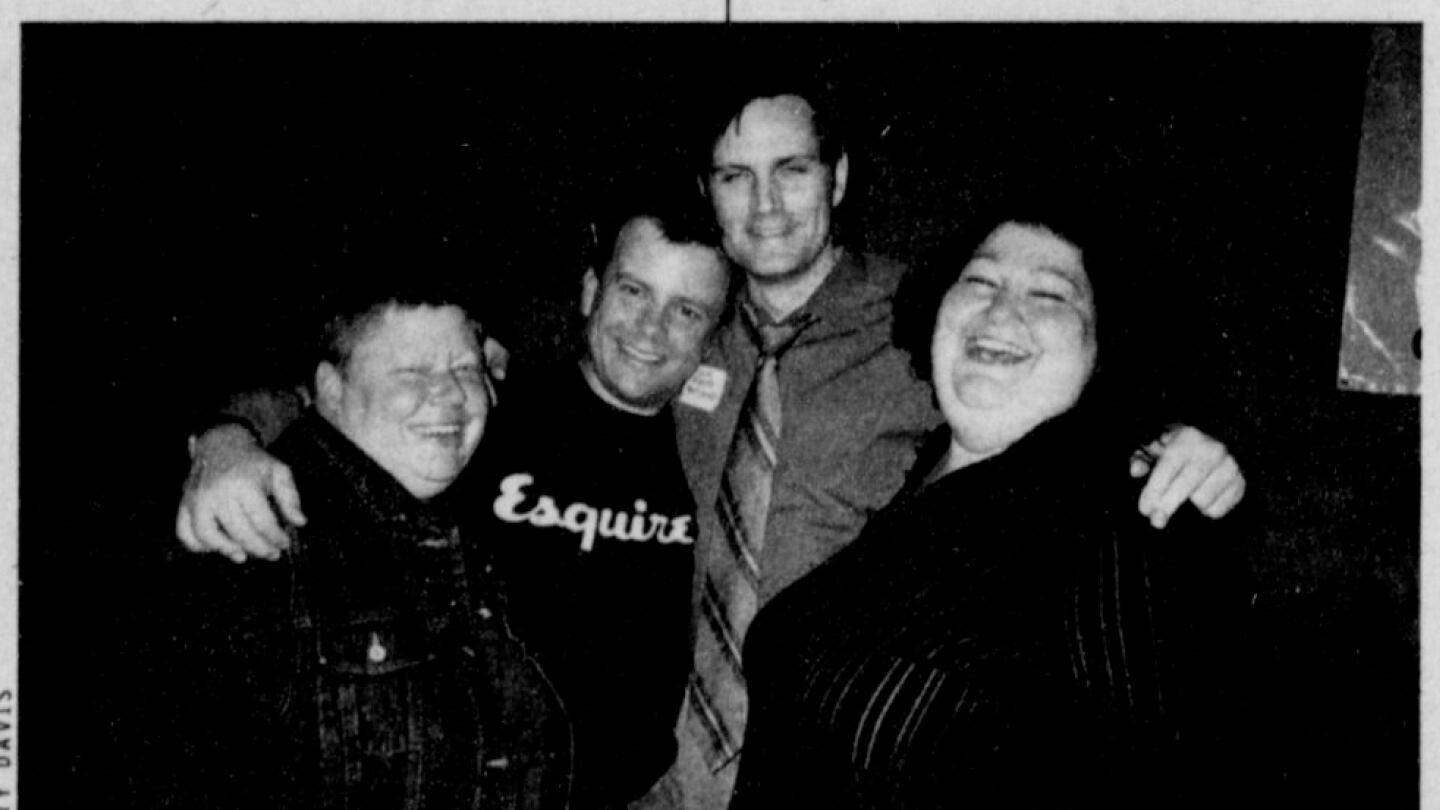The final returns from last week’s election show former Mayor Sam Adams squeaking by hotelier Jesse Burke for a spot in the November runoff for Multnomah County Commission District 2, representing North and Northeast Portland. Adams will face social worker Shannon Singleton, who finished well ahead of Adams and Burke.
This isn’t the first time Sam Adams narrowly escaped defeat in a May primary. His career in public office started the same way: He finished a distant second to Nick Fish in May of 2004, but forced a November runoff and made a comeback. Is the past prologue?
This story first appeared in the Nov. 10,2004 edition of WW.
For Sam Adams, the nadir of a long, dismal summer came not on May 18, when Nick Fish stomped him by nearly 11 points in the City Council primary—but in the weeks afterwards.
Adams split with his longtime partner, lost his campaign manager and started packing on pounds faster than a feed-lot steer. Meanwhile, Fish was making the rounds to Adams’ backers with a compelling case for why his opponent had no chance in the November runoff.
It was then that a group of Adams’ closest advisors, including former campaign manager Austin Raglione and strategist Liz Kaufman, came to him with a gentle suggestion: consider quitting the race.
“We had done focus groups after the primary which were really disheartening,” Adams says. ‘’That’s why my advisors came to me with the option of dropping out. I was shocked.”
Adams says he thought hard about quitting but, in light of the low May turnout, decided to push on to the fall campaign. He borrowed $10,000 from a friend for a poll. The numbers showed a huge percentage of undecided voters, and Adams decided to stay in the race.
Last week, that move paid off, as Adams stunned Fish 51 to 48 percent. Many observers have noted that Adams, who is gay, benefited from a huge vote against Measure 36, the ban on same-sex marriage, in Portland. That certainly helped Adams, but so did three key developments that came late in the campaign.
1. The pol: On Oct. 15, at a Starbucks on Southwest Barnes Road, Adams met with former Gov. John Kitzhaber. The two were not exactly rafting buddies—Adams says he hadn’t spoken to Kitzhaber in more than 10 years. Nonetheless, the candidate showed up with a script for a radio ad and asked Kitzhaber to consider reading it. Once again, Adams was taking a gamble; Kitzhaber has maintained a low profile in Portland politics, and Adams had no money to buy radio time. Kitzhaber, reportedly angry about a letter Fish once signed criticizing his support for K-12 education while governor, agreed.
2. The PAC: On Oct. 17, the Victory Fund, a national political action committee that supports gay candidates, delivered a $25,000 check, Adams’ biggest contribution in the race. The dough allowed a then-penniless Adams to air the Kitzhaber ad 250 times. Adams also blasted an email of the ex-guv’ s plug to thousands of carefully targeted voters.
3. The Potterites: Over that same weekend, GoPotterGo, an independent political action committee, released about 40,000 “Progressive Voter’s Guides” targeted at young and undecided voters. The guides had the effect of linking Adams to Potter, who had a commanding lead in the mayoral race, and branding Adams as the more “progressive” of two very similar council candidates.
Both Adams and Potter disavowed any role in the guides, but a key ally of both, Commissioner Erik Sten, seemed to play an indirect role. Leland Larson, a Sten supporter, paid for the guides, and Marshall Runkel, a Sten aide who is an expert on voter demographics, advised GoPotterGo on the readership most likely to swing Adams’ way.
Finally, Adams was a tireless campaigner who carpeted the city with lawn signs and leaflets and spent more time on street corners than a panhandler. “I’d stand there with a sign that said ‘I am Sam,”’ Adams recalls. “Some people were amused, some were shocked, and some were appalled.”
Among those shocked was Fish, who began running for the open seat almost immediately after losing another council bid two years ago. “In retrospect, my best chance was to win outright in May,” Fish says. “But I got the worst possible outcome— wounding the bear but not killing it.”
